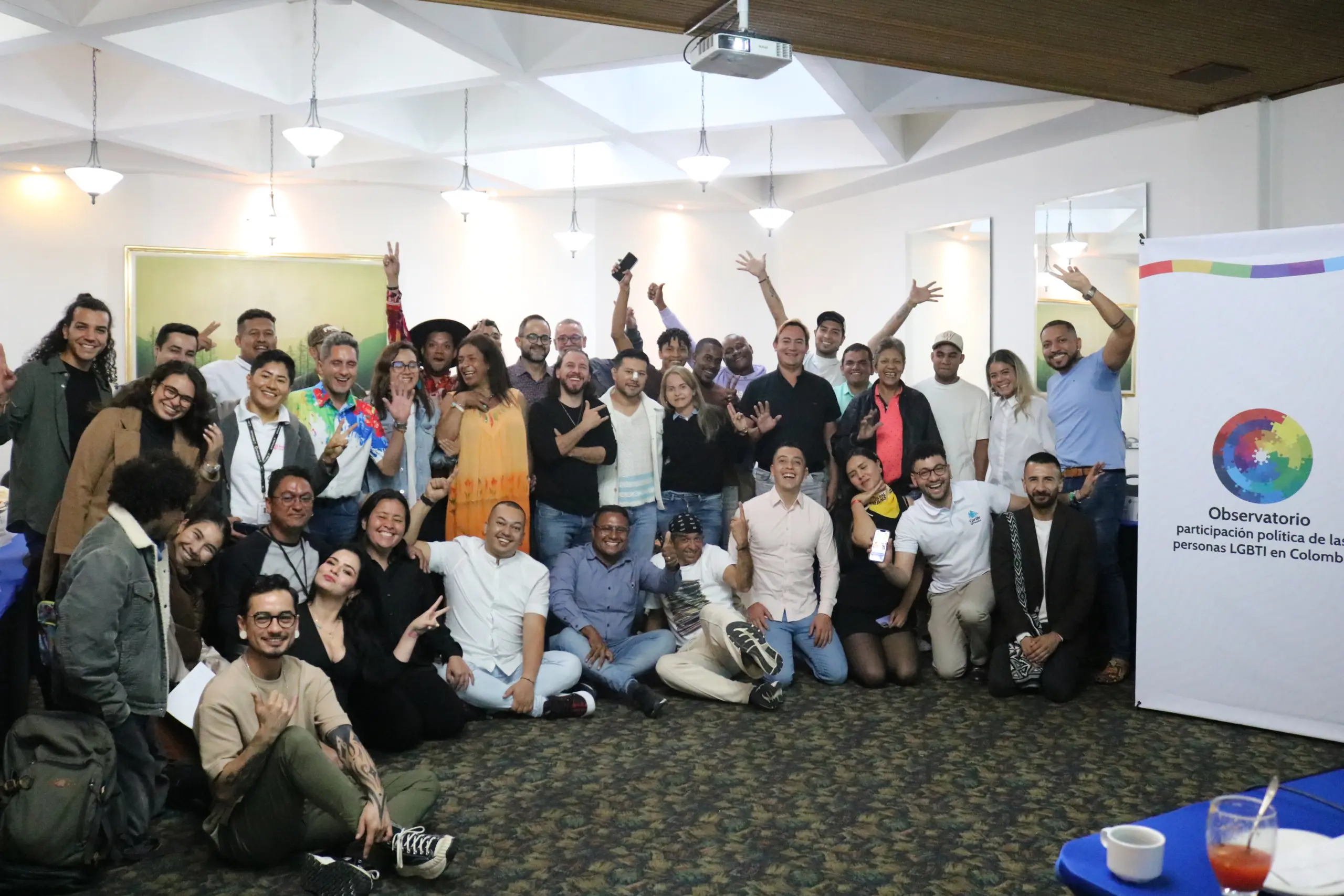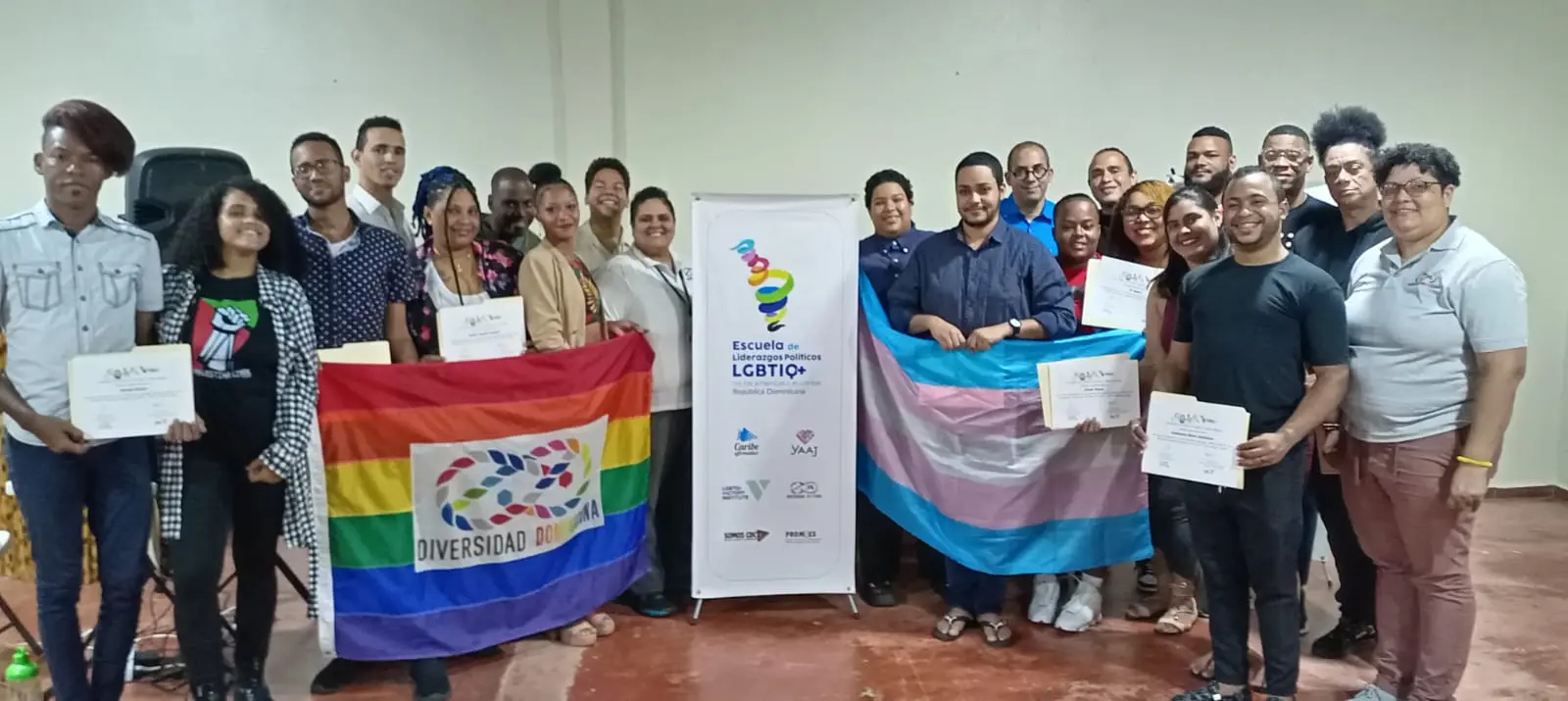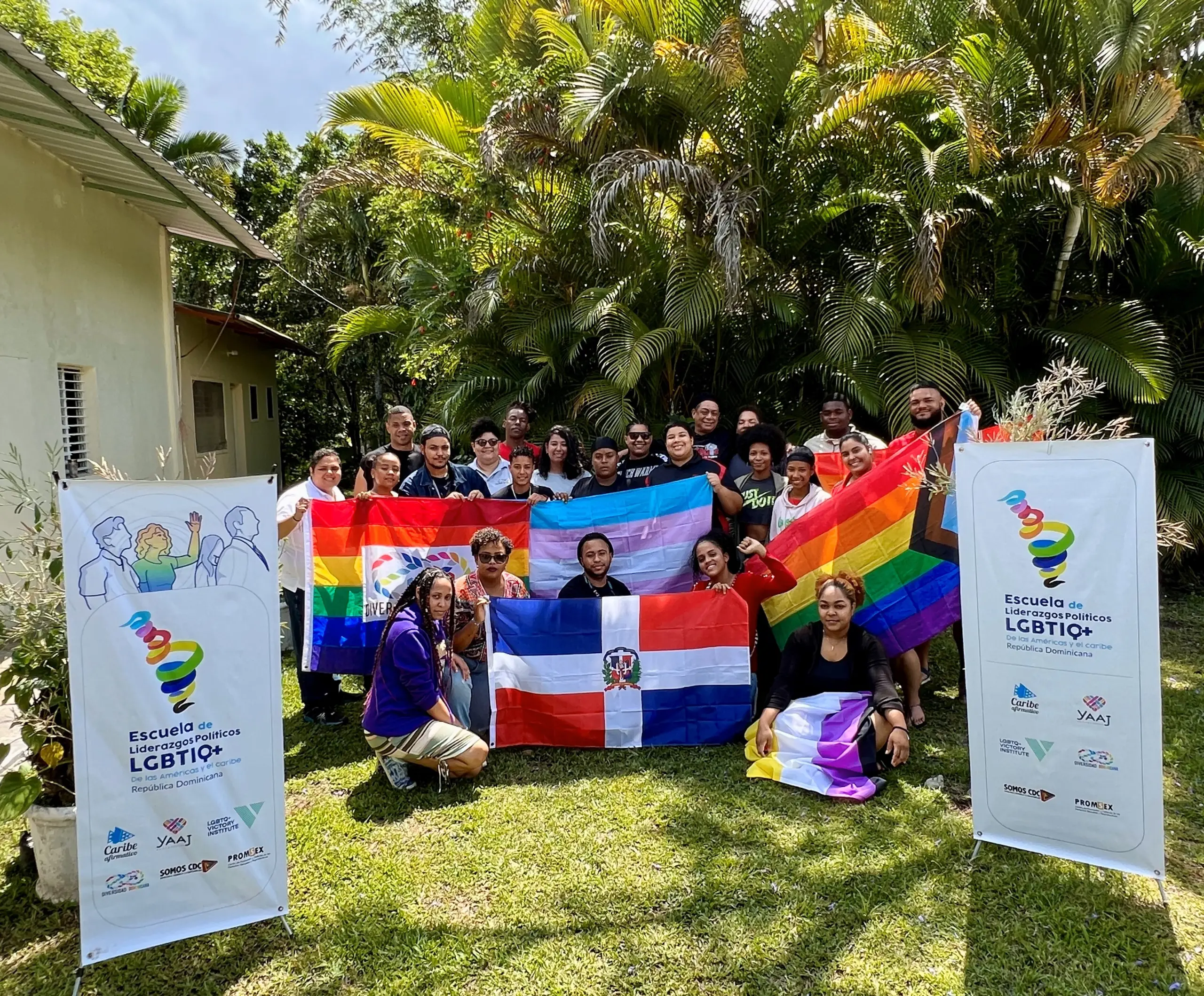
Ever the globetrotters, Victory Institute’s Global team has stayed on the road continuing to push forward LGBTQI+ political participation and leadership. Most recently, our travels took us to Mexico City for… THE LGBTQI+ POLITICAL LEADERSHIP TRAINING PROGRAM CLOSURE IN MEXICO!
Over 3 days of programming, Victory Institute Global, along with our partners at Yaaj México, worked to bring a close to an intense and first-of-its-kind training after 5 months of study. Read the details below!
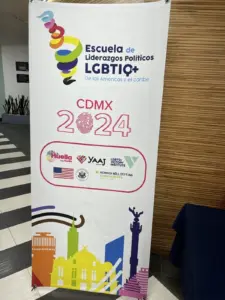
Culminating the Mexico LGBTQI+ Training Program in downtown Mexico City.
Mexico LGBTQI+ Political Leaders Train for Elections
Mexico LGBTQI+ Leadership Training Program By The Numbers
Dates:
- May 3-5, 2024
Participant Demographics:
- 22 total participants
- 27% cis men
- 23% cis women
- 23% trans women
- 18% NB persons
- 9% trans men
Module #4 – Political Communications:
- Defining Communication and Political Communication
- Political Marketing
- Political Marketing Strategies
- Analysis of Political Communications Campaigns
- Understanding Public Discourse and Creating Iconic Discourse
- Pitch and Public Speaking
In Mexico City, our star-studded training program, originally including 17 pre-candidates that are now three current candidates in Mexico’s elections, closed out with a focus on Political Communications. Over 2 intensive days (packing in over 10 and a half hours of study and practical exercises on day 1!), our training participants were led by expert trainer María Dilia Reyes Torres in the basics of social communication, the way they feed into political communication and finally, political marketing strategies.
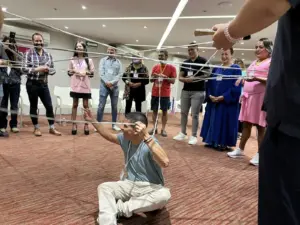
Participants kicked off the training program with an exercise in creative storytelling. They used the rope to ”string together” and build upon each other’s stories.
Political Communications: The Art of Making a Political Message Attractive
Marketing, Branding, and Messaging: What Do They Have to do With Politics?
In a packed agenda that shifted between definition of key terminology and analysis of real-world examples, participants looked at a variety of marketing strategies and how these are applied to political communications. Initially, participants worked with our trainer in first discussing and defining:
1) what communication is; and
2) defining how political communications work and why they’re so useful.
They also reviewed how campaigns utilize common communications strategies to create a political brand, identified specific themes that stood out, and how these succeeded in connecting with broader audiences.
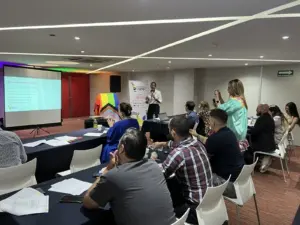
Participants discussing “Why Communication?”
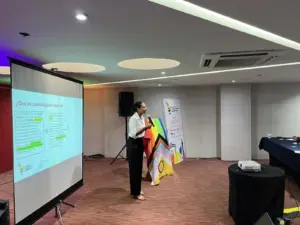
Expert trainer, María Dilia Reyes Torres, discussing political communication and its use with training participants.
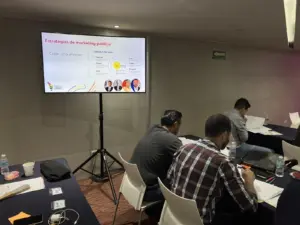
A large portion of the curriculum focused on analyzing political marketing strategies.
Political Messaging and Elevator Pitch: Simulating Connection with Voters
During our second and final day of training, participants spent the day applying all that was defined and analyzed during day 1 into practical simulations of elevator pitches. Spending time in model campaign teams and building out communication strategies, participants then individually took part in a timed exercise before their peers, presenting their “political brand,” explaining their platform and piloting communications to hook their audience. In just 30 seconds, participants had to transmit the essence of their platforms and why voters should vote for them, followed by group feedback sessions on areas to better their communication.
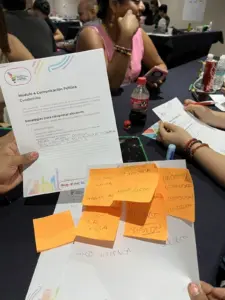
Participants building out comms strategies to connect with their target electorate.
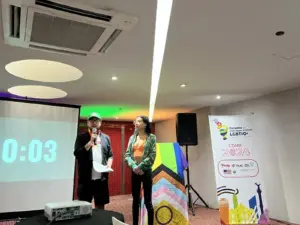
Presenting their political brands in timed exercises.
Closing Out a Historic Program
It’s important to highlight that, while our methodology is relatively standardized and applied by trainers across all Global’s various programs, each training course is unique in the way participants absorb, understand and apply the information they’re learning. In the case of our Mexico program, though it would be easy to assume that participants already knew of these strategies, as many were pre-candidates themselves or currently work within various campaign teams leading up to the elections, this was not necessarily the case. It was palpable and exciting to see the way that they took the information from each slide, each conversation and each exercise as something completely new. The program truly gave them the space to build upon existing skills and develop new ones in real time.

Closing out the training program with a networking event for participants. Trainees were able to connect with Victory Institute’s Global partners from Latin America who joined us in Mexico City to launch the Regional Observatory on LGBTQI+ Political Participation in the Americas and the Caribbean.
With elections on June 2, we’re excited to see such a high number of Mexican trainees involved in the current electoral cycle in Mexico, while also finding time and space to join us over the past 5 months dedicated to ensuring their individual leadership is equipped to continue participating and diversifying LGBTQI+ political participation in the years to come.
Victory Institute’s Global work will continue to support and build LGBTQI+ political participation in Mexico, the Americas and around the world – for those who remain, for those to come and for those who have been lost and should be here with us.
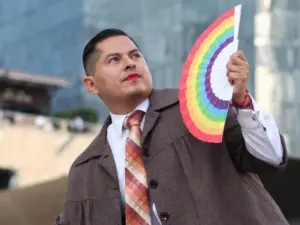
Jesús Ociel Baena Saucedo, Mexico and Latin America’s first non-binary magistrate. Ociel was murdered in their home on November 13, 2023. They were also selected to be a trainer in our Mexico Leadership Program. (Cortesía Instagram @ocielbaena)
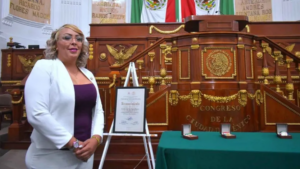
Samantha Gomes Fonseca. Samantha, a trans activist and pre-candidate to Mexican Senate in this year’s elections, was murdered on January 14, 2024. Samantha had been selected as a participant and was slated to join us in the training program that started just a week after her murder.
